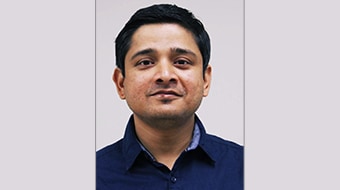
[ad_1]
The Supreme Court on Friday sentenced Rashtriya Janata Dal (RJD) leader and former Member of Parliament (MP) Prabhunath Singh to life imprisonment in a double murder case of 1995, days after it reversed his acquittal which it said was a result of the failure of the state machinery and trial court to ensure a fair trial.

A bench of justices Sanjay Kishan Kaul, AS Oka, and Vikram Nath also directed Singh and the Bihar government to pay ₹10 lakh each and separately to the families of the two deceased victims and ₹5 lakh each to an injured victim in the case.
Singh was produced virtually from the Hazaribagh jail in Jharkhand where he is presently undergoing life imprisonment in another murder case.
A trial court in 2017 had found him guilty in connection with the 1995 murder of legislator Ashok Singh, who defeated the former MP in the 1995 Bihar assembly poll. Prabhunath Singh had threatened to eliminate him within 90 days of the election results.
Also Read: SC finds ex-RJD Lok Sabha MP guilty in double murder case, reverses acquittal
Senior advocates Abhishek Manu Singhvi and R Basanth, representing Singh pleaded that his client be not sentenced to death sentence since it was not a case that would fall within the category of the “rarest of rare” offence. The lawyers added Singh’s acquittals by two courts below have been reversed by the Supreme Court, and it is also a relevant factor to be accounted for at the time of sentencing. While the lawyers informed the bench that Singh has also filed a review petition against the conviction order on August 18.
In its August 18 judgment convicting Singh, the apex court had lamented that the three main stake holders in a criminal trial, namely the Investigating Officer that is the part of the police of the State of Bihar, the public prosecutor, and the judiciary, has all “utterly failed to keep up their respective duties and responsibilities cast upon them.”
The bench had on the day held that Singh, a three-term Janata Dal (United) or JD(U) and one-time RJD MP from Maharajganj, in the double murder case saying there is sufficient evidence to show he murdered Rajendra Rai (18) and Daroga Rai (47), near a polling booth in Chhapra in March 1995.
The two were shot dead because they did not vote as per Singh’s suggestion.
The Patna high court transferred the case from Chhapra after the kin of those killed alleged that witnesses were being threatened and influenced. A Patna court in December 2008 acquitted Singh citing lack of evidence. The Patna high court upheld the acquittal in 2012. Rajendra Rai’s brother challenged the acquittal in the Supreme Court.
In its judgment on August 18, the apex court also underlined that the tainted investigation shows the high-handedness of Singh, who was a powerful person being a sitting MP of the ruling party, as it lamented that the prosecution, trial court as well as the Patna high court unjustifiably overlooked the dying declaration of Rajendra Rai as well as the eye-witness account of his mother.
“The prosecution version in the present case was being demolished brick by brick by using political authority and muscle power with the aid of not only the police administration but also with the aid of Public Prosecutor and unfortunately, the presiding officer of the trial court also conducted himself in a manner unbecoming of a judicial officer,” said the bench, adding several key witnesses and evidence were deliberately kept out or overlooked during the trial to benefit Singh.
It came down hard on the “deplorable functioning of the public prosecutor, police administration and the presiding officer of the trial court to extend undesirable favour” to Singh, noting there were sufficient evidence to hold that Singh shot dead the deceased.
“Both the courts completely shut their eyes to the manner of the investigation, the prosecutor’s role, and the high-handedness of the accused as also the conduct of the presiding officer of the trial court,” it said.
The court, however, affirmed the acquittal of six other co-accused over lack of evidence.
Singh joined Janata Dal in 1995. He later became a member of JD(U) before joining RJD in 2010 after falling out with chief minister Nitish Kumar.
[ad_2]
